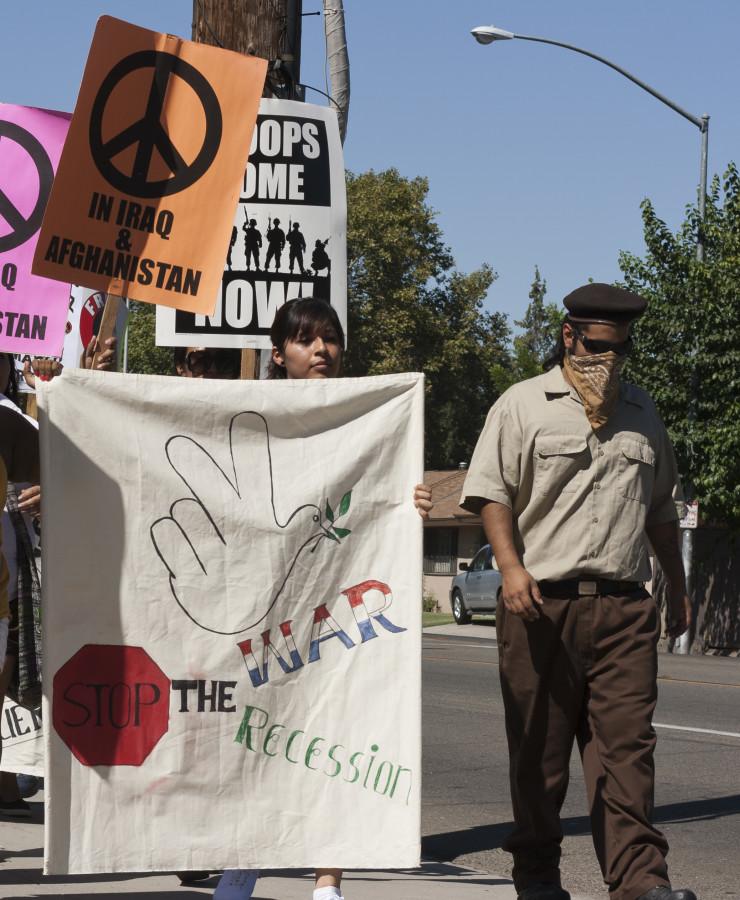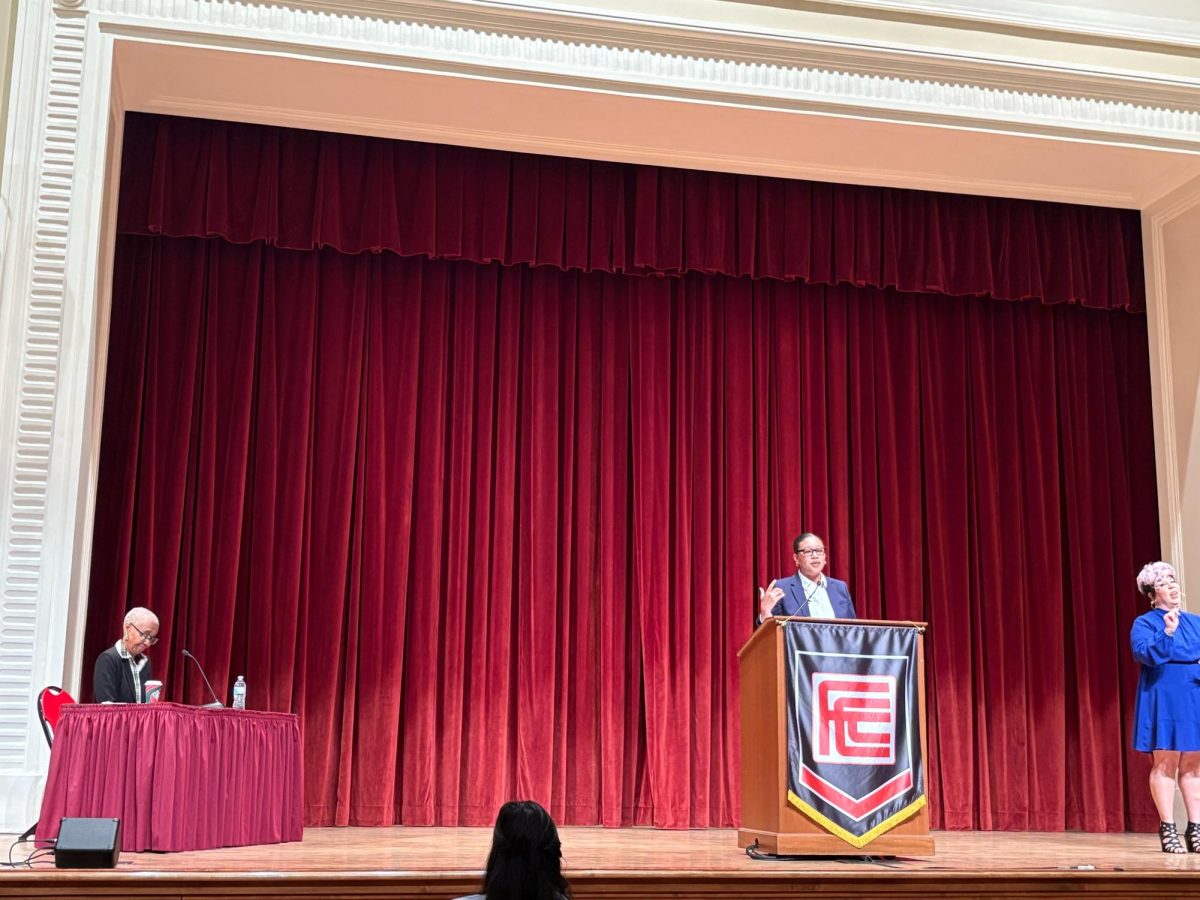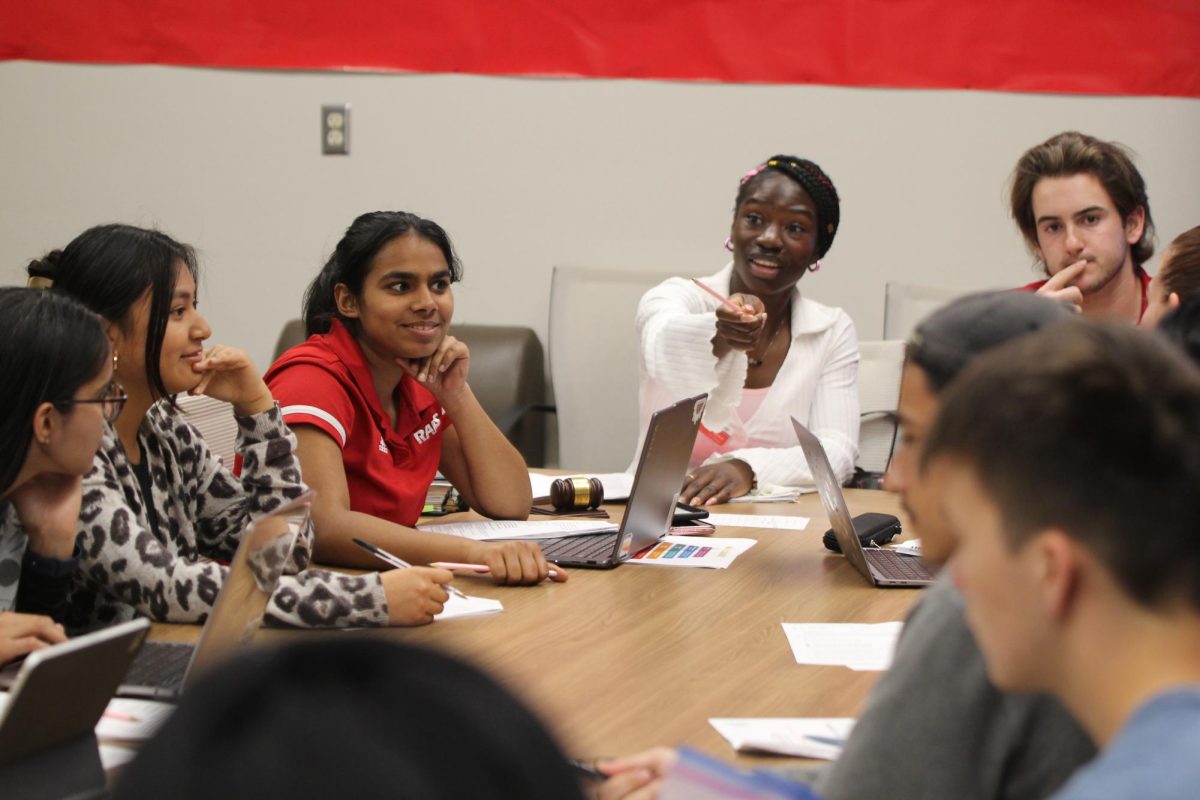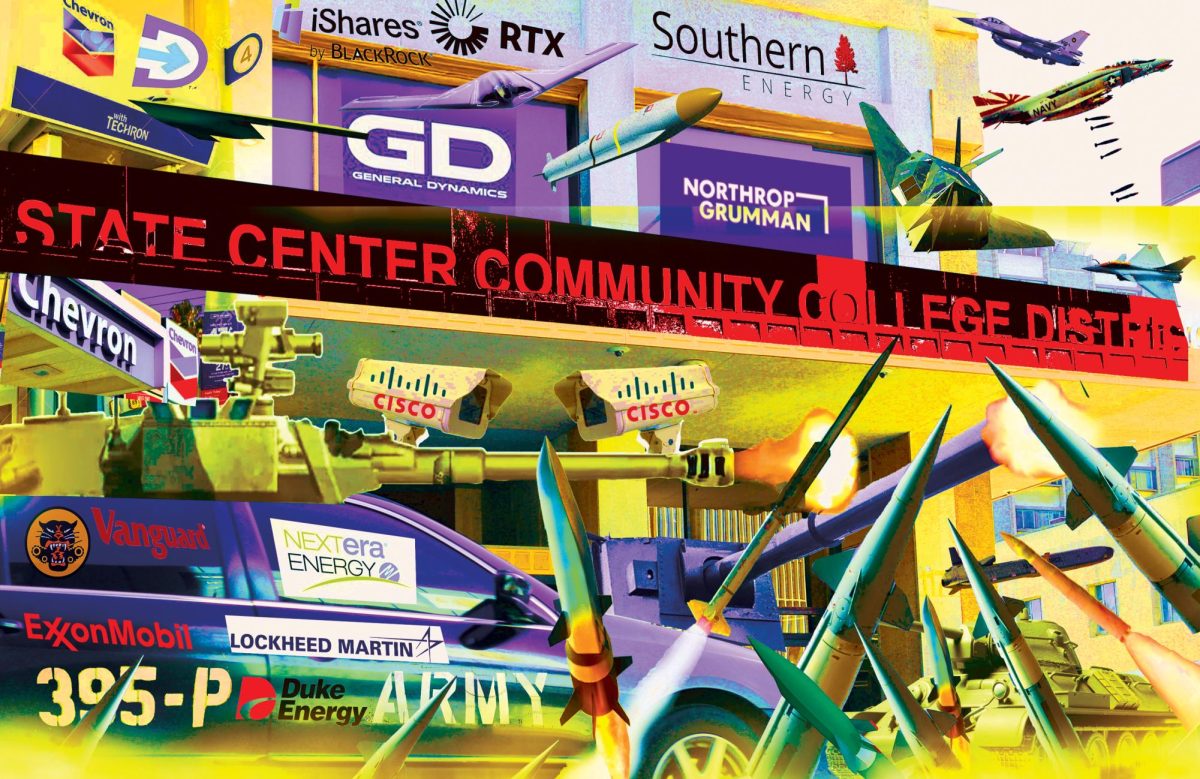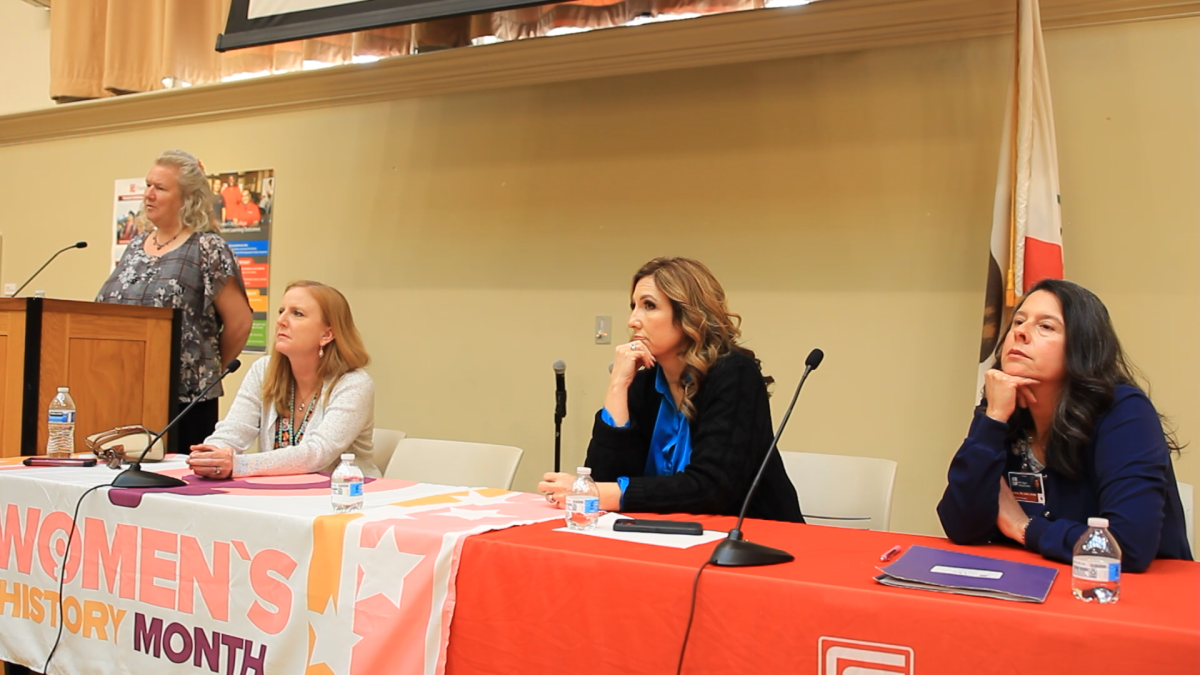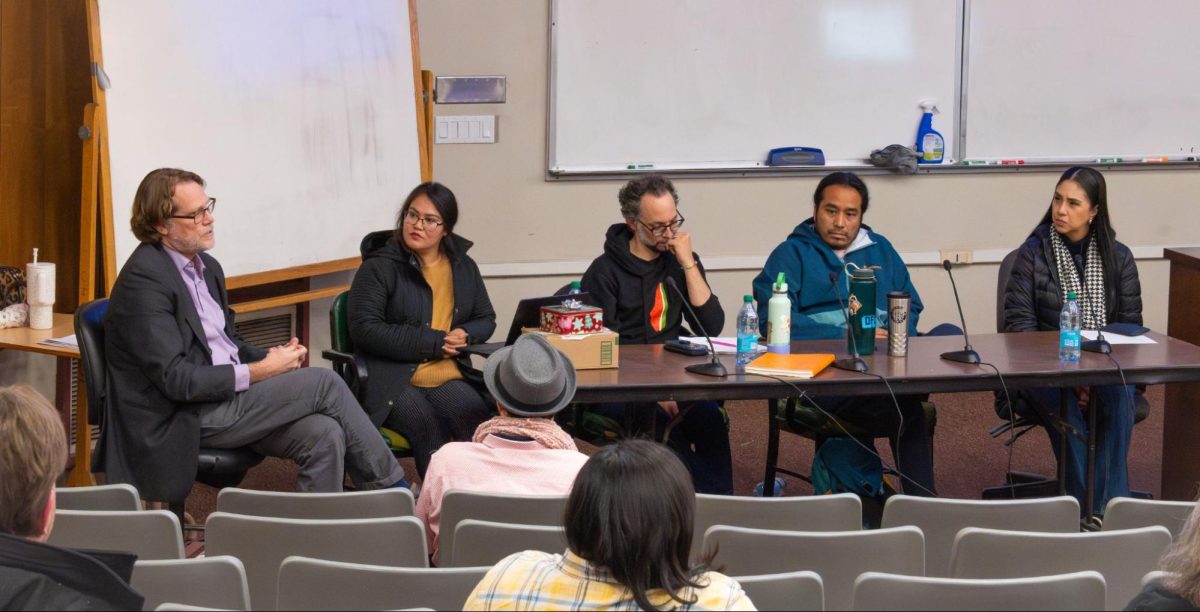Fresnos two-day Chicano Moratorium began Aug. 25 and featured several community groups, including Peace Fresno, Raza Against War, the Fresno Brown Berets and Iraq Veterans for Peace. Nationally known peace activists, Cindy Sheehan and Fernando Suarez del Solar, also spoke against this country’s deep economic and social involvement in wars abroad.
The moratorium concluded with a march for peace, beginning on Huntington Ave and First Street, ending at the Mosqueda Community Center.
Suarez del Solar highlighted the first day of the moratorium by screening “A Senseless Death,” a film by Raymonde Provencher. The film documented how the death of his son, Jesus – one of the first to die in the invasion of Iraq – led to the creation of the Guerro Azteca Peace Project.
Jesus Suarez del Solar, though not a U.S. citizen, enlisted in the military at 17 and a half. In March 2003, two hours before the invasion of Iraq was publically declared, Jesus, a trained sniper, was sent out to scout for cluster bombs, something he wasn›t trained for. Jesus stepped on a cluster bomb and lay injured for two hours before superiors called a rescue helicopter. He died as soon as the helicopter arrived.
Suarez del Solar called the Sept. 11, 2001 attacks George W. Bush›s “beautiful excuse” to attack Iraq and Afghanistan to control its oil reserves. He stressed the importance of educating the youth, “When you have respect and you have education, you can change the situation. It›s not the president, it›s not the Congress – the young people today have the real power. It’s not only the Latino people, but the working class community is under attack by the military recruiters in the school.”
On Aug. 27, Cindy Sheehan founded the anti-war organization Peace of the Action after her son Casey was killed while serving in Iraq in April 2004. Peace of the Action focuses on “localization not globalization” and “recreating revolutionary communities.”
“We have to be in solidarity, don’t we? Military recruiters target our young people in poor communities and communities of color. The only reason my son joined the military is because he couldn’t afford to go to university. God forbid the banks lose any money or the war profiteers lose any money. We›re losing our homes; we’re losing security done here on the streets. Our power is to be able to say to a young person don’t join the military. We need to stop participating in their wars,” said Sheehan.
Saturday’s march began with chants of, “Hey hey ho ho, these resource wars have got to go!” and “Books not bombs!”
When asked what organization he was with, a member of Peace Fresno simply said, “I’m with all of us. Everyone who is against war.”
Gloria Hernandez, a protest organizer who organized a similar march in Fresno in 1971 said, “We can›t forget. We gotta learn from our past. We know that the first 10 victims of the Iraq war were Latinos. Two didn’t have papers, several immigrants, some citizens. We know that the majority of people who died are from rural areas because there’s no jobs.”
Eduardo Castro, another Vietnam veteran who participated, carried a sign that read, “Stop scapegoating the immigrants. The corporate military complex is the problem.”
“The sad part is these military recruiters have a way of convincing some of these [immigrant] kids with false hope of becoming citizens which they may or may never become. I don›t trust recruiters at all,” admits Castro. He expresses his wish that more veterans would come out against the wars but thinks most are dealing with post-traumatic stress disorder.
“I feel bad for these veterans that are fighting in over there in Afghanistan and Iraq…The recruiter doesn›t tell them that they can send them back more than one time. If you don’t give a soldier enough time to recuperate from the experience, he›s gonna be worse off…You see a big increase from people committing suicide.”
Danzantes Aztecas of Fresno State supported marchers at the community center, and Daniel Mejia, a senior at CSUF, stated “War devalues life. We believe life is so precious we don›t need to be wasting it on wars. We need to bring our troops home so we can focus on our communities.”
“As soon as there›s a war, all of the sudden we’re American,” Charlie Trujillo says in the second film viewed, “Soldados: Chicanos in Vietnam.” Trujillo, a Vietnam veteran, attended FCC in 1971.
“Don’t join the military,” Trujillo said to FCC students.

